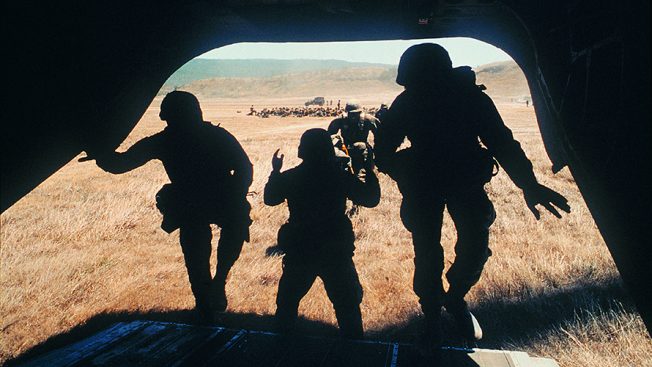Don't miss ADWEEK House at Cannes, June 16-19. Join us as we celebrate our 45th anniversary and explore the industry's now and next. RSVP.
My leadership philosophy came from a rather unexpected source, one that is not traditionally associated with innovation and creative thinking: the military.
In 2001, I did something I never anticipated I would do: I left my agency career to join the Army. Compelled to action by the events of September 11, 2001, I enlisted with the small hope that I could make some form of contribution to America’s cause. Following basic training, I progressed to spend two years in active service in Mosul, Iraq. It was truly a transformative experience.
My time in the military challenged me to motivate and lead diverse teams of people to achieve mission objectives in a variety of environments. In addition to honing my leadership and team-working skills, I learned life-changing lessons that fundamentally altered my leadership philosophy—lessons I certainly wouldn’t have learned had I not taken this career detour.
Above all else, I learned that the Army does demand an element of creativity, and the best leaders are those who embrace it.
Lead from the front
You can’t lead from the rear; you must get out on the front line and spearhead the changes that need to happen. Successful leaders don’t spend their days sitting behind desks. They know exactly what’s happening on the ground because they are out there experiencing it for themselves. If you want to be a successful leader, you should have a clear understanding of what’s really going on and how it will affect your team.
Be clear on your mission
Of course, you shouldn’t just venture out into the unknown without a clear plan. You need a solid strategy that is underpinned by a clear mission and objectives that everyone on your team understands and prescribes to. Don’t be distracted by things that are not mission-critical. You should always know what’s going on around you. Equally important is to not let trivial things derail what you and your team are working to accomplish.
By developing a common goal, you can help your team remain focused on what matters as opposed to letting emotion and/or [office] politics get in the way.
Know the rules of engagement
What are the ground rules? How do you expect members of your team to behave if complications arise? Are members of your team empowered to make executive decisions when needed? Don’t leave any room for uncertainty.
Ensure your team has the right equipment
In the military, I learned the importance of taking care of others through the idea of “beans, bullets and boots.” You have to make sure that your team has access to all the tools they need to do their job well. To be successful, you need to understand, acknowledge and embrace the value of the team and the contribution they make to the mission.
Protect your people and their ideas
In the military, as is the case in the advertising industry, your greatest assets are your team and their perspectives of how problems can be solved. When a great idea is presented to you, nurture and protect it. Don’t feel the need to take over and control it. Help guide the process and improve the concept, but don’t let your ego make you think you have to “own the idea.”
Senior creatives often fail because they believe they need to make an idea their own—that’s not important. A great idea is fragile; it’s crucial that you safeguard it from being over-handled or derailed by too many opinions and points of view.
Trust and be trusted
You may be in a leadership position, but that doesn’t mean you know everything. You have to trust your team, and they must trust you.
Make sure you have situational awareness
Have a clear understanding of what’s really going on. This will prevent any surprises or issues from taking you completely off guard. While it’s impossible to predict all unforeseen obstacles, having situational awareness will help you proactively address them.
You need to be aware of your surroundings and think on your feet; situations within a combat zone are fluid, and you must be able to quickly and effectively adapt to the ever-changing environment.
Conduct an after-action review
An after-action review (AAR), aka post-mortem, is essential. It helps you to recognize what factors contributed to your performance and how you can improve moving forward. It’s even more important to review your failures than your successes. While this can be painful, you must face your weaknesses head-on and take positive action to ensure they are solidly confined to the past.
Training is key
While I served, training was a crucial component of everyday life, learning new skills and refreshing the ones that have already been mastered. Through training, the basics become muscle memory, which allows for quicker reaction times and the opportunity to focus on more complex challenges.
My time in the military taught me that there are no certainties. However, you can improve your chances of being successful by fostering relationships. Go that extra mile to get to know people, show respect for their needs and ideas, and react to their ideas positively and confidently. These traits are the hallmarks of great leaders, in both advertising and military campaigns.








